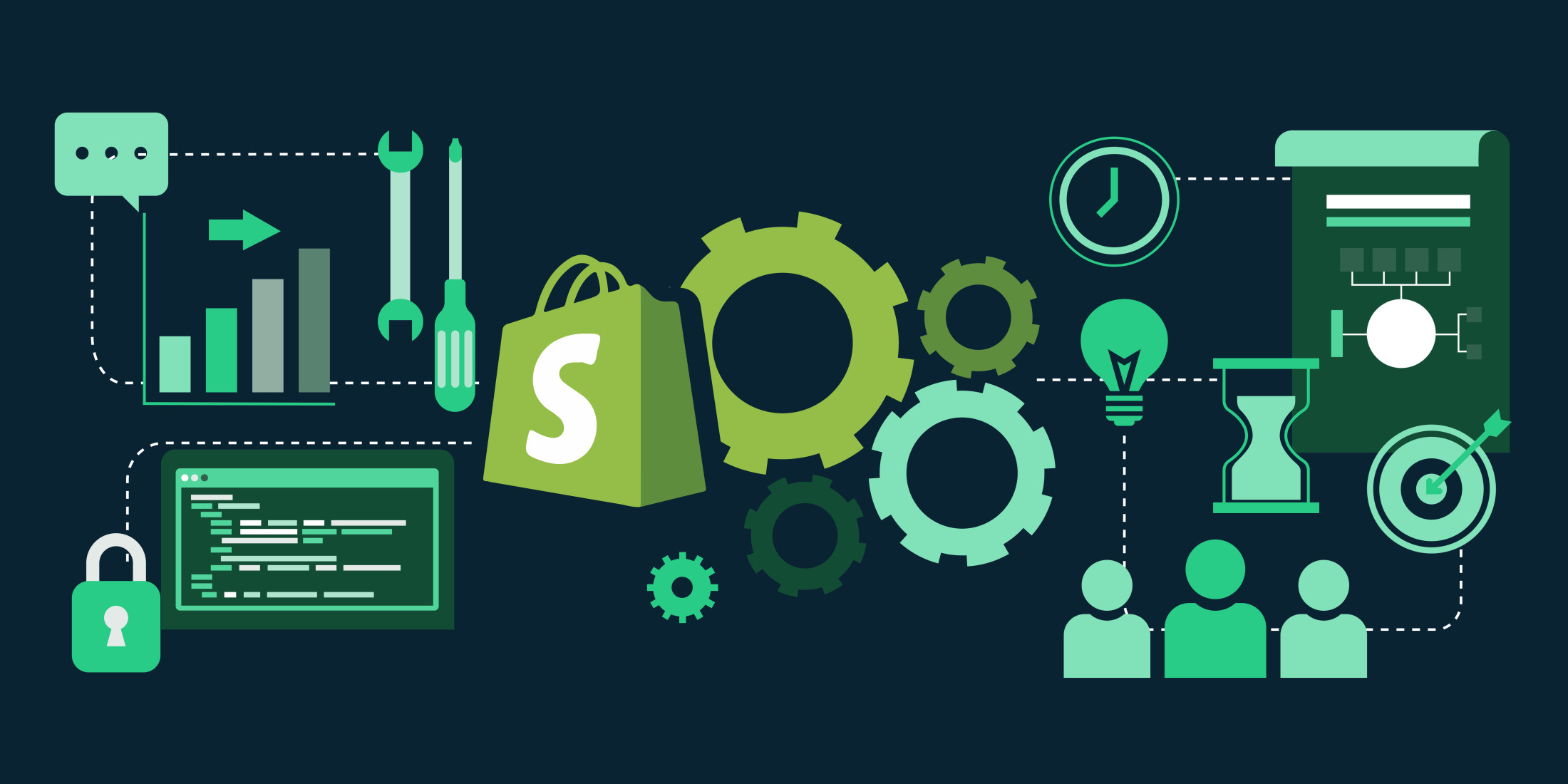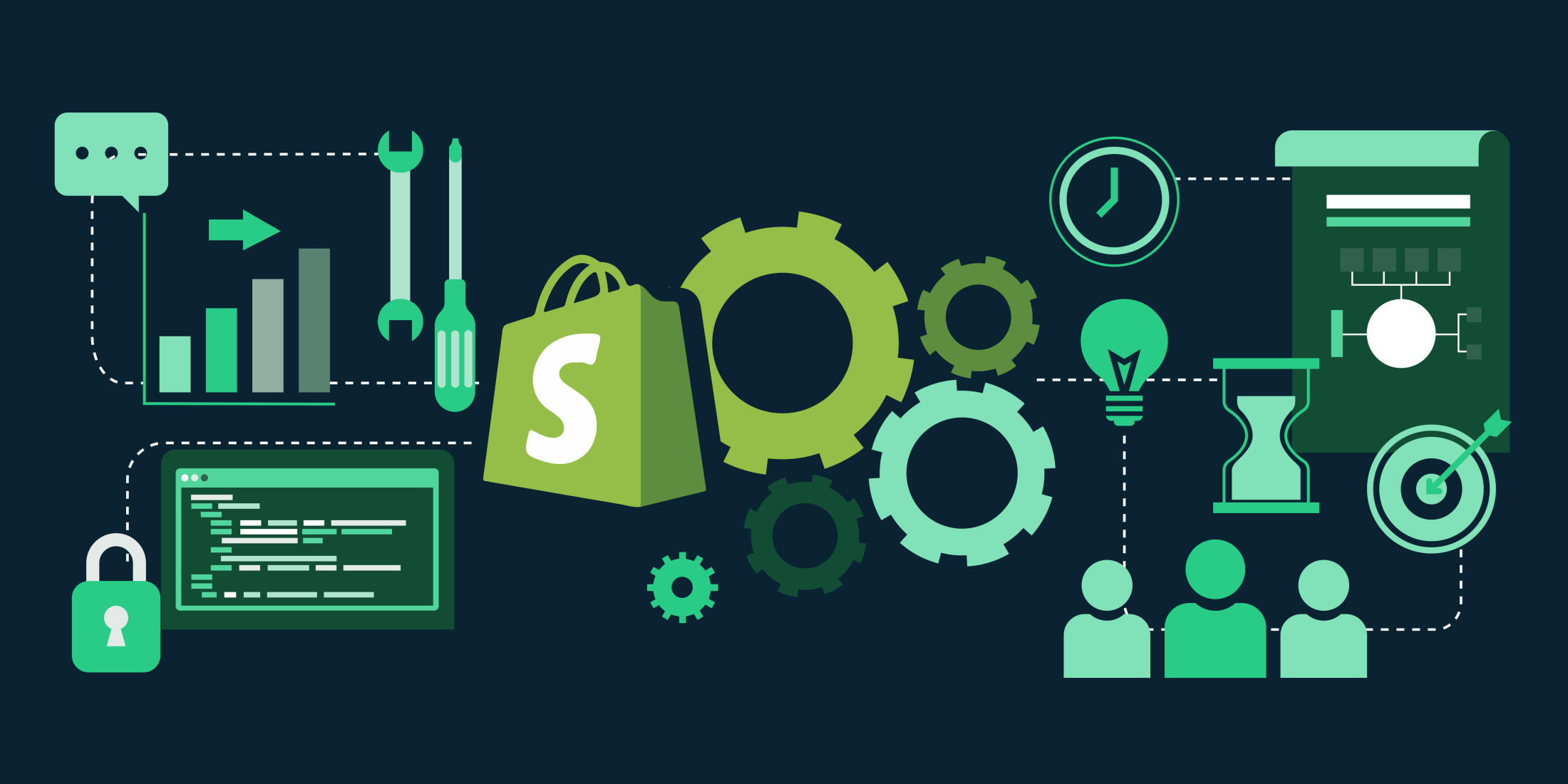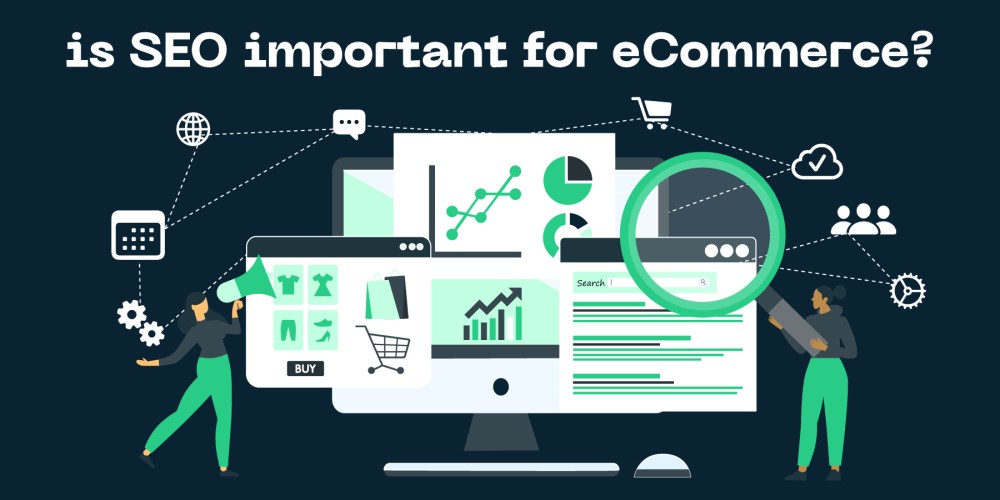How to Use AI for Better Customer Segmentation

Key Takeaways
- AI customer segmentation techniques can help you understand your audience better and enhance personalized marketing with AI.
- Machine learning for customer segmentation allows you to create AI-driven customer profiling, making it easier to target specific groups.
- Implementing AI segmentation for eCommerce can significantly improve your marketing strategies and customer experiences.
- Artificial intelligence in market segmentation offers tools for gaining deeper customer insights, using predictive analytics for customer segmentation.
- Companies like ConvertMate provide expert solutions to optimize your eCommerce marketing through AI integration and automation.
- Explore advanced segmentation strategies like behavioral segmentation and predictive analytics for even more precise targeting.
- Be mindful of challenges such as data privacy and balancing automation with human insights.
- Learn from successful eCommerce brands that have adopted AI to see tangible improvements in their customer segmentation efforts.
Introduction to AI in Customer Segmentation
Understanding AI-Driven Segmentation
In the dynamic world of ecommerce, understanding customer behavior is crucial for enhancing conversion rates and driving sales. This is where AI-driven segmentation makes a significant difference. By leveraging advanced machine learning algorithms and vast amounts of customer data, AI enables store owners and marketers to gain deeper insights into customer preferences and behaviors. Unlike traditional segmentation methods, which rely on broad categories like age or location, AI can analyze complex patterns and relationships within the data, allowing for more nuanced and effective segmentation strategies. This means that businesses can target their marketing campaigns with remarkable precision, resulting in higher engagement and conversion rates.
One of the key benefits of AI-driven segmentation is its ability to continually learn and adapt. As new data streams in, AI models refine their understanding of customer segments, ensuring that the insights remain relevant and actionable. For ecommerce businesses, this means staying ahead of evolving consumer trends and preferences, which can be pivotal in a competitive market. Furthermore, AI’s capability to process and analyze large datasets in real-time allows marketers to respond swiftly to changes in customer behavior, tailoring promotions and offers to meet the exact needs of different customer segments. This level of personalization not only enhances the shopping experience but also fosters customer loyalty and repeat business.
Implementing AI for customer segmentation does require an initial investment in the right tools and platforms, but the return on investment can be substantial. By automating the segmentation process, AI reduces the time and resources spent on manual analyses, freeing up marketers to focus on strategic decision-making. Additionally, AI-driven insights can reveal unexpected opportunities for cross-selling and upselling by identifying customer segments that are more likely to respond positively to certain products or offers. For ecommerce store owners and marketers aiming to maximize their conversion rates, embracing AI-driven segmentation is not just an option; it is an essential step towards achieving a competitive edge in the digital marketplace.
Benefits of AI for Segmentation
Artificial Intelligence has revolutionized the way businesses approach customer segmentation, offering a more nuanced and dynamic understanding of consumer behavior. For eCommerce store owners and marketers, embracing AI-driven segmentation is no longer just an option but a necessity to stay competitive. AI algorithms can process vast amounts of data at lightning speed, identifying patterns and trends that would be nearly impossible for humans to recognize. This enables businesses to target their audiences more effectively, ensuring that marketing efforts resonate with the right people at the right time. By leveraging AI, businesses can not only enhance their segmentation strategies but also improve overall customer experience, leading to increased conversion rates.
One of the standout benefits of AI in customer segmentation is its ability to adapt and learn continuously. As customer preferences evolve and market dynamics shift, AI systems can rapidly adjust their models to reflect these changes, providing real-time insights that traditional methods simply cannot match. This adaptability ensures that eCommerce marketers are always one step ahead, enabling more precise targeting and personalized marketing strategies. Moreover, AI excels at identifying micro-segments, allowing businesses to cater to niche audiences with tailored offerings that drive higher engagement and sales.
Additionally, AI can integrate data from multiple sources, offering a 360-degree view of each customer. By combining information from browsing history, purchase behavior, social media interactions, and more, AI creates comprehensive customer profiles that support highly effective segmentation. This holistic approach not only enhances targeting accuracy but also aids in developing more cohesive and personalized marketing campaigns. Ultimately, the use of AI in customer segmentation empowers eCommerce businesses to make data-driven decisions that boost customer satisfaction, foster loyalty, and significantly improve conversion rates.
Implementing AI for Your Store
Tools and Platforms
Incorporating AI into your ecommerce store can revolutionize how you approach customer segmentation, enabling more precise targeting and personalized marketing strategies. A pivotal part of this transformation is selecting the right tools and platforms that align with your business objectives and customer profiles. There is a myriad of AI tools available that can help streamline your segmentation process by analyzing customer data more efficiently and accurately than manual methods. These platforms use machine learning algorithms to identify patterns and trends within large datasets, which can be instrumental in understanding customer behaviors and preferences.
One of the most significant advantages of using AI tools for customer segmentation is the ability to dynamically segment customers in real-time. Platforms such as Segment, Optimove, and BlueVenn offer robust solutions that integrate seamlessly with existing ecommerce systems. They can process and analyze customer data from multiple sources, providing actionable insights and enabling you to tailor your marketing efforts with precision. By leveraging AI-driven platforms, you can create more refined customer segments based on various criteria like purchase history, browsing behavior, and engagement levels, ultimately leading to more meaningful and personalized customer interactions.
Moreover, implementing AI tools can also help you test and optimize your segmentation strategies continuously. This continuous feedback loop allows you to refine your approaches based on real-world performance, ensuring that your marketing efforts are always aligned with customer expectations and industry trends. Additionally, many AI platforms offer predictive analytics, which can forecast customer behavior and help you anticipate needs and preferences before they even arise. By investing in the right AI tools and platforms, ecommerce store owners and marketers can unlock new opportunities for growth, enhance customer satisfaction, and significantly improve conversion rates.
Integrating with Existing Systems
Integrating AI with existing systems can be a transformative step for ecommerce businesses aiming to enhance customer segmentation and ultimately increase conversion rates. The key to successful integration lies in the seamless blending of AI technologies with your current infrastructure, ensuring a smooth transition that enhances your store’s capabilities without disrupting your operations. Rather than replacing your established systems, AI should augment them, leveraging existing data and processes to provide deeper insights into customer behavior. This involves ensuring that AI solutions are compatible with your current platforms and that they can effectively communicate with your existing databases and applications.
One of the most significant advantages of integrating AI into your existing systems is the ability to utilize large volumes of data already accumulated within your store. By doing so, you can gain a more nuanced understanding of your customers, identifying patterns and trends that might have gone unnoticed without AI’s analytical capabilities. This integration allows for more precise customer segmentation, enabling you to tailor marketing efforts and products to specific customer segments, thereby enhancing personalization and boosting conversion rates. However, it is crucial to maintain data integrity and security throughout this process to preserve customer trust and comply with relevant regulations.
Moreover, the integration process should include staff training and support to ensure that your team is well-equipped to manage and leverage the new AI-enhanced tools. Employees need to understand how AI can affect decision-making processes and contribute to strategic initiatives. By fostering a culture that embraces technological innovation, you can ensure that your team is prepared to maximize the benefits of AI in customer segmentation. Ultimately, a well-integrated AI system can lead to more informed business strategies, improved customer experiences, and increased conversion rates, positioning your ecommerce store for long-term success.
Advanced Segmentation Strategies
Behavioral Segmentation
In the realm of advanced segmentation strategies, behavioral segmentation emerges as a pivotal approach for ecommerce store owners and marketers aiming to enhance their conversion rates. Unlike traditional methods that categorize customers based on demographic or geographic data, behavioral segmentation delves into the actions and decisions of consumers to create more nuanced profiles. By analyzing behaviors such as purchase history, browsing patterns, and engagement levels, businesses can tailor their marketing efforts to meet the specific needs and preferences of different segments. This method not only facilitates more personalized marketing campaigns but also helps predict future behavior, enabling proactive strategies to engage customers effectively.
One powerful aspect of behavioral segmentation is its ability to integrate seamlessly with AI technologies. AI tools can process vast amounts of behavioral data quickly and efficiently, identifying patterns and trends that might be invisible to human analysts. For instance, AI algorithms can segment users based on real-time interactions and provide insights into which customer groups are more likely to respond to specific promotions or abandon their carts. This level of detail allows marketers to optimize their strategies dynamically, increasing the likelihood of conversions by presenting the right offer to the right segment at the right time.
Adopting behavioral segmentation powered by AI can be transformative for ecommerce businesses looking to refine their customer engagement approaches. By moving beyond surface-level data and focusing on behavior-driven insights, businesses can foster deeper customer relationships and improve their overall marketing ROI. As consumer behavior continues to evolve in the digital age, leveraging AI for behavioral segmentation will not only keep businesses competitive but also ensure they are meeting the ever-changing demands and expectations of their audience. This strategic alignment of technology and customer insights paves the way for more sophisticated and effective marketing strategies.
Predictive Analytics in Segmentation
Predictive analytics is revolutionizing the way ecommerce businesses approach customer segmentation, moving beyond traditional demographic and behavioral analyses to more advanced, data-driven methodologies. By leveraging AI-driven predictive models, marketers can now create dynamic customer segments that not only consider past behaviors but also anticipate future actions and preferences. This level of insight allows for highly personalized marketing strategies, as the segmentation process becomes not just about understanding who the customers are, but about predicting what they will want or do next. For ecommerce store owners, this means the possibility of enhancing conversion rates by proactively addressing customer needs and delivering tailored experiences.
One of the significant advantages of using predictive analytics in segmentation is its ability to process vast amounts of data to uncover hidden patterns and trends. By employing machine learning algorithms, businesses can identify micro-segments within their customer base that may have been overlooked using traditional methods. These micro-segments can be targeted with specialized marketing campaigns that resonate more deeply with customers, thereby fostering greater engagement and loyalty. This strategic approach is particularly beneficial for ecommerce marketers looking to optimize their return on investment, as it allows for more precise allocation of marketing resources.
Moreover, predictive analytics empowers ecommerce businesses to implement advanced segmentation strategies that are both agile and adaptable. As customer behaviors evolve and market conditions shift, predictive models can quickly adjust to provide updated insights, ensuring that marketing efforts remain relevant and effective. This agility is essential for maintaining a competitive edge in the fast-paced digital marketplace. In summary, by harnessing predictive analytics for advanced customer segmentation, ecommerce store owners and marketers can significantly enhance their ability to connect with customers, ultimately driving higher conversion rates and fostering long-term brand loyalty.
Challenges and Considerations
Data Privacy and Security
As eCommerce businesses increasingly turn to AI for more effective customer segmentation, data privacy and security become paramount considerations. Leveraging AI involves analyzing vast amounts of customer data to discern patterns and insights that drive more personalized marketing strategies. However, this reliance on data necessitates stringent measures to protect customer information from breaches and misuse. The risk is not only to the customer's sensitive data but also to the brand's reputation. Consumers are increasingly aware of and concerned about how their data is collected, stored, and used, and any lapse can lead to loss of trust and potential legal repercussions. Therefore, it is crucial for eCommerce store owners and marketers to ensure robust data protection mechanisms are in place when utilizing AI technologies.
One of the significant challenges in data privacy is complying with regulations such as the GDPR in Europe or CCPA in California, which impose strict guidelines on how customer data should be handled. These regulations require businesses to obtain explicit consent from users before collecting data and to provide options for users to opt out. For marketers, this means developing transparent privacy policies and ensuring that AI tools for customer segmentation are compliant. It's also important to minimize the data collected to what is absolutely necessary and to anonymize data wherever possible to protect individual identities. Implementing regular audits and vulnerability assessments can help identify and rectify potential security weaknesses before they can be exploited.
Security considerations should not be seen as mere compliance hurdles but as essential components of a trustworthy and customer-centric business model. By actively prioritizing data privacy and security, companies not only protect themselves from potential fines and reputational damage but also build stronger relationships with their customers. Demonstrating a commitment to safeguarding customer information can become a differentiator in competitive markets, enhancing customer loyalty and driving conversions. As AI continues to evolve, integrating these privacy and security measures into your AI strategy for customer segmentation will be crucial for sustainable growth and success in the eCommerce landscape.
Balancing Automation with Human Insight
Balancing automation with human insight is a crucial consideration for ecommerce store owners and marketers aiming to enhance their customer segmentation. While AI-powered tools can analyze vast amounts of data efficiently, providing granular customer segments, it’s important to remember that these tools are not infallible. Algorithms often lack the nuanced understanding of human behavior, meaning they can sometimes miss contextual or emotional factors that influence purchasing decisions. For instance, a purely data-driven segmentation might group customers by purchase frequency and value, but without human insight, it might overlook seasonal purchasing patterns or cultural nuances that significantly impact buying behavior.
Another challenge lies in the potential over-reliance on AI, which can lead to a disconnect between the brand and its customers. While AI can identify patterns and predict trends, it cannot replicate the human ability to empathize and understand the underlying motivations of customers. It is essential for marketers to validate AI-generated insights with qualitative data, such as customer feedback and market research, to ensure that segments are not only accurate but also meaningful. This balance allows for a more personalized approach, facilitating stronger connections with customers and ultimately boosting conversion rates.
Moreover, ethical considerations surrounding the use of AI in customer segmentation should not be overlooked. Ensuring transparency in how customer data is used and processed is critical to maintaining trust. Marketers should use AI responsibly, ensuring that data privacy laws are adhered to and that customers are informed about how their data will be utilized. By balancing automation with human insight and ethical considerations, ecommerce businesses can leverage AI effectively while maintaining a customer-centric approach, ultimately driving better engagement and higher conversion rates.
Case Studies and Success Stories
Successful eCommerce Brands
In recent years, the most successful eCommerce brands have harnessed the power of Artificial Intelligence (AI) to redefine customer segmentation. Through the use of AI, these brands have been able to delve deeper into consumer behavior, preferences, and trends, allowing them to tailor their marketing strategies with unprecedented precision. AI-driven algorithms can analyze vast amounts of data in real-time, offering insights that were previously unimaginable. This capability not only enhances the personalization of marketing messages but also optimizes the overall customer experience, leading to increased conversion rates and customer loyalty.
One compelling case study comes from a leading online fashion retailer that employed AI to segment its customer base more effectively. By utilizing machine learning algorithms, the company could identify micro-segments based on shopping habits, preferences, and previous interactions. The insights gained allowed them to create highly personalized marketing campaigns that spoke directly to individual customers’ needs and interests. For instance, rather than sending generic promotional emails, they could offer tailored product recommendations and exclusive offers that resonated with each customer’s unique style preferences. As a result, the retailer saw a significant increase in both conversion rates and average order value.
Another success story is that of a major electronics eCommerce platform that integrated AI to optimize its customer segmentation strategy. By leveraging predictive analytics, the platform was able to anticipate customer needs and preferences before even the customers themselves realized it. This proactive approach led to more targeted advertising and a more efficient allocation of marketing resources. The insights derived from AI allowed the company to focus its efforts on high-value segments, leading to substantial growth in customer acquisition and retention rates. These examples demonstrate that by embracing AI for customer segmentation, eCommerce brands can not only enhance their marketing efforts but also build stronger, more meaningful relationships with their customers.
Lessons Learned from AI Adoption
AI adoption in customer segmentation has revolutionized the way ecommerce businesses understand and engage with their customers. By leveraging AI technologies, companies can analyze vast amounts of data to identify patterns and trends that were previously unimaginable through traditional methods. This allows businesses to create more precise and dynamic customer segments, leading to more personalized marketing strategies and ultimately higher conversion rates. The key lesson here is the importance of data quality and integration; without comprehensive and clean data, AI algorithms may produce skewed results, which can lead to misguided business decisions.
One success story comes from a mid-sized online retail company that implemented AI-driven customer segmentation to enhance their marketing efforts. Initially, their segmentation approach was based on basic demographic data, which offered limited insights. By adopting AI solutions, they were able to incorporate behavioral and transactional data, resulting in a more nuanced understanding of their customer base. This transition not only improved their targeting accuracy but also increased customer engagement by 30%. The main takeaway from this case study is that AI can uncover hidden patterns and preferences that traditional segmentation tools often miss, enabling companies to craft highly personalized customer experiences.
Another compelling example is a global ecommerce platform that used AI to refine its segmentation strategy, focusing on predicting customer lifetime value (CLV). This approach allowed them to prioritize high-value customers and tailor their offerings accordingly. By utilizing AI models to predict CLV, the company achieved a 25% increase in average order value and a significant boost in customer retention. The lesson from this success story is that AI not only aids in creating better segments but also provides insights into future customer behavior, helping businesses to allocate their resources more effectively. AI-driven segmentation thus empowers marketers and store owners to not only attract the right audience but also nurture long-lasting relationships with their customers.
FAQS
How does AI improve customer segmentation?
AI improves customer segmentation by analyzing vast amounts of data to identify patterns and trends that may not be visible to human analysts. It uses machine learning algorithms to group customers based on behaviors, preferences, and purchasing history, leading to more personalized marketing strategies.
What types of data are needed for AI-driven customer segmentation?
For AI-driven customer segmentation, you need access to data such as customer demographics, purchase history, website interactions, social media behavior, and engagement metrics. Integrating data from these diverse sources allows AI to create more accurate and insightful segments.
How does ConvertMate assist in AI-driven customer segmentation?
ConvertMate helps by integrating with your existing eCommerce and analytics platforms, using AI to analyze customer data and optimize segments based on conversion potential. This allows you to target campaigns more effectively and increase your conversion rates.
Can AI-driven customer segmentation enhance targeted marketing campaigns?
Yes, AI-driven customer segmentation enhances targeted marketing campaigns by identifying specific customer needs and preferences, enabling personalized messaging and offers. This approach increases engagement and conversion rates by addressing the right audience with the right message.
What role does machine learning play in customer segmentation?
Machine learning plays a crucial role by continuously learning from new data inputs and adjusting customer segments accordingly. This dynamic process ensures that segmentation strategies remain relevant and effective as customer behaviors and market conditions change.
How can AI help in identifying high-value customer segments?
AI can identify high-value customer segments by analyzing patterns in spending, frequency of purchases, and product preferences. It helps pinpoint customers who are likely to contribute the most to your revenue, enabling more focused marketing efforts.
What are some challenges when implementing AI for customer segmentation?
Challenges include ensuring data quality and integrity, integrating AI tools with existing systems, and interpreting AI-generated insights correctly. However, using platforms like ConvertMate can streamline this process by offering seamless integration and user-friendly analytics.



